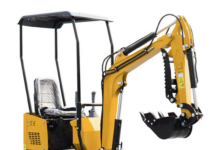Exploring the Functionality and Applications of High-Pressure Ball Valves
High-pressure systems are an integral part of various industries, from oil and gas to manufacturing processes. Ensuring the safe and efficient control of these systems requires reliable components, and one such crucial component is the high-pressure ball valve. In this article, we will delve into the world of high pressure ball valve, exploring their functionality, applications, and the key features that make them indispensable in high-pressure environments.
Understanding High-Pressure Ball Valves
High-pressure ball valves are engineered to control the flow of liquids or gases in systems that operate under extreme pressure conditions. These valves employ a spherical closure with a through-hole, which is rotated to open, close, or regulate the fluid flow. They are designed to handle pressure levels significantly higher than traditional ball valves, making them ideal for demanding industrial applications.
Key Features of High-Pressure Ball Valves
- Robust Construction: High-pressure ball valve are built with sturdy materials such as stainless steel, alloy steel, or brass, ensuring they can withstand the rigours of high-pressure environments.
- Leak-Tight Seal: The spherical design of the valve ensures a tight seal, minimizing the risk of leakage and ensuring the safety of the system.
- Quick Operation: High-pressure ball valves provide swift on/off and throttling capabilities, making them ideal for applications that require rapid response to changing conditions.
- Resistance to Corrosion: Many high-pressure ball valves are designed to resist corrosion and erosion, making them suitable for use in harsh chemical and offshore environments.
- Versatility: These valves are adaptable to a wide range of applications, including water treatment, petrochemical, power generation, and more.
Applications of High-Pressure Ball Valves
- Oil and Gas Industry: High-pressure ball valves are crucial in controlling the flow of oil, natural gas, and various chemicals within pipelines and drilling operations.
- Chemical Processing Plants: These valves play a pivotal role in managing the flow of corrosive and abrasive chemicals used in chemical manufacturing.
- Water Treatment Facilities: High-pressure ball valves are employed to regulate the flow of high-pressure water in water treatment plants, ensuring efficient operation.
- Power Generation: In power plants, these valves control high-pressure steam, fuel, and other fluids in boiler systems and turbines.
- Manufacturing Processes: High-pressure ball valves are used in a variety of manufacturing applications, including hydraulic and pneumatic systems, to manage high-pressure fluids and gases.
Maintenance and Safety Considerations
Regular maintenance is essential to ensure the longevity and reliability of high-pressure ball valves. This includes inspecting seals, checking for leaks, and lubricating moving parts. Additionally, it is crucial to adhere to safety standards and guidelines when operating these valves, especially in high-pressure environments, to prevent accidents and system failures.
Conclusion
High-pressure ball valves are indispensable components in industries that deal with extreme pressures. Their robust construction, leak-tight seals, and quick operation make them the preferred choice for controlling high-pressure fluids and gases. With their versatility and adaptability to various applications, high-pressure ball valves are a cornerstone of safety and efficiency in critical systems. Whether in the oil and gas sector, chemical plants, or power generation facilities, these valves play a pivotal role in ensuring reliable and safe operations in high-pressure environments.




